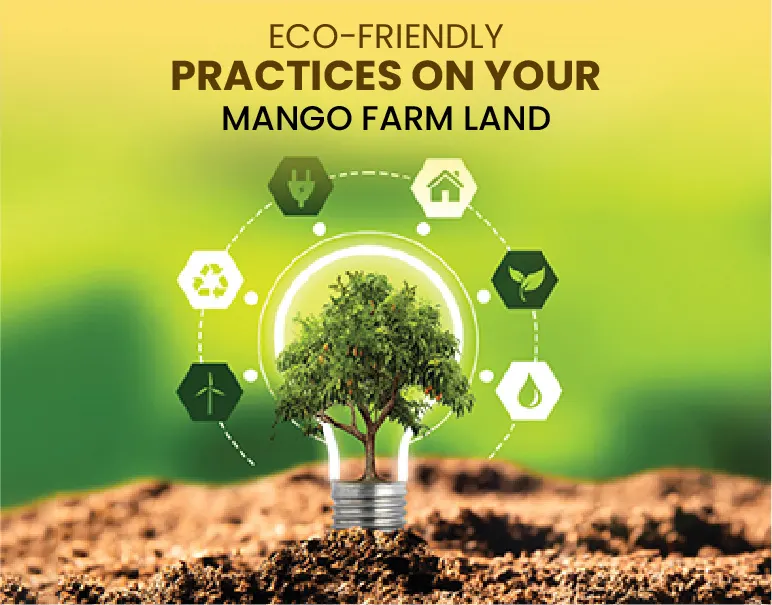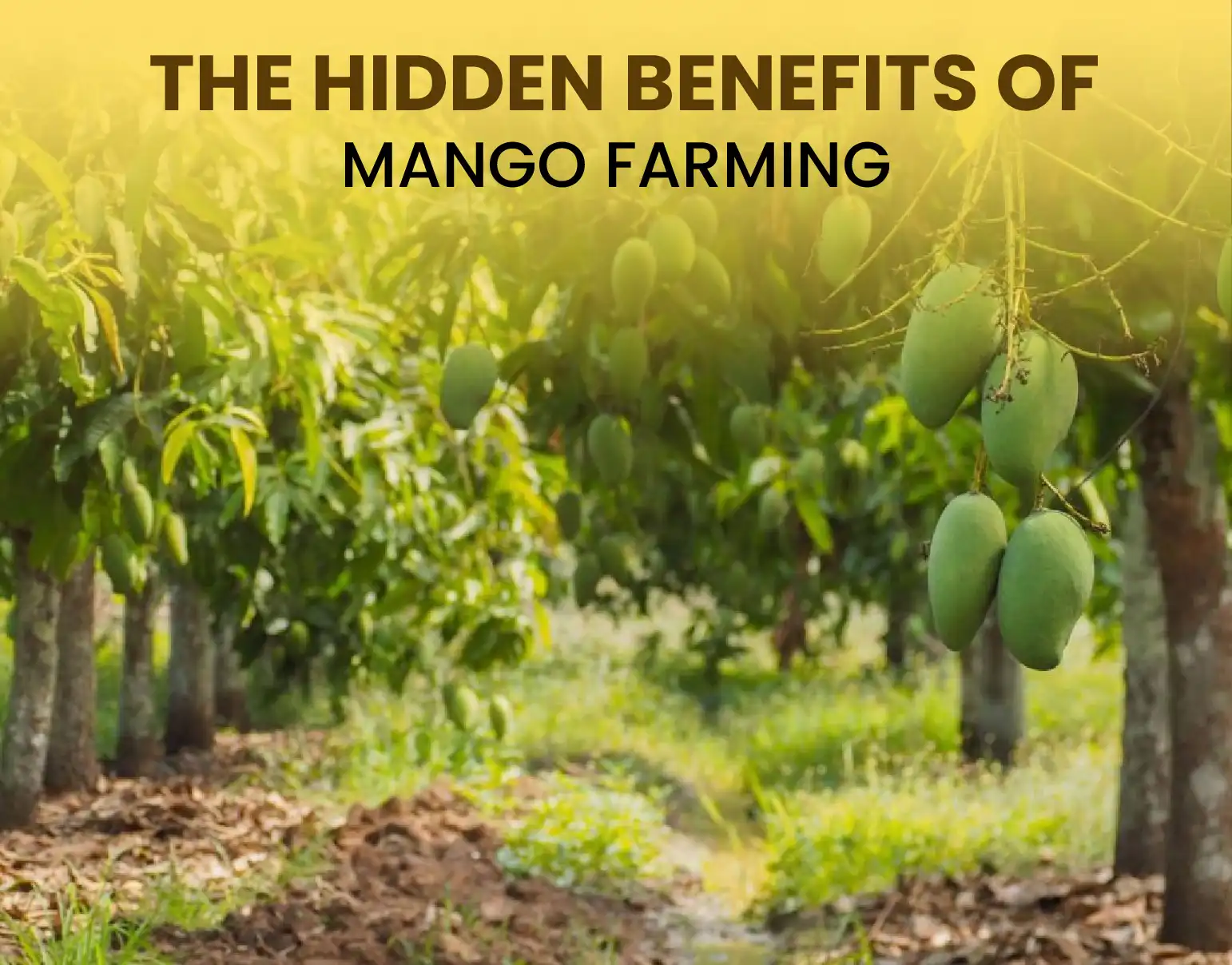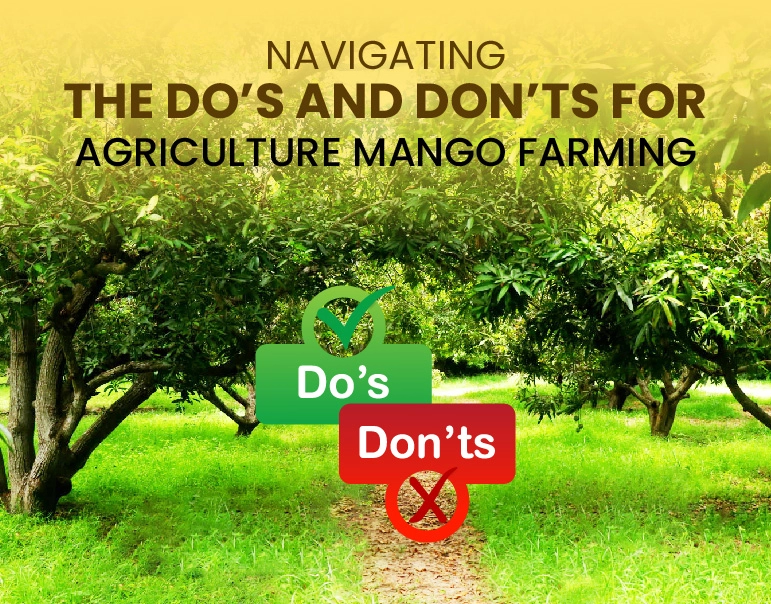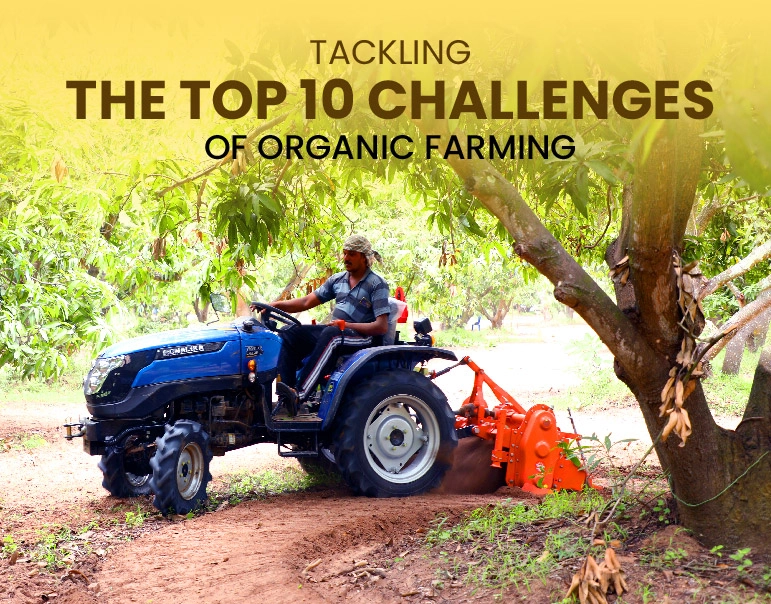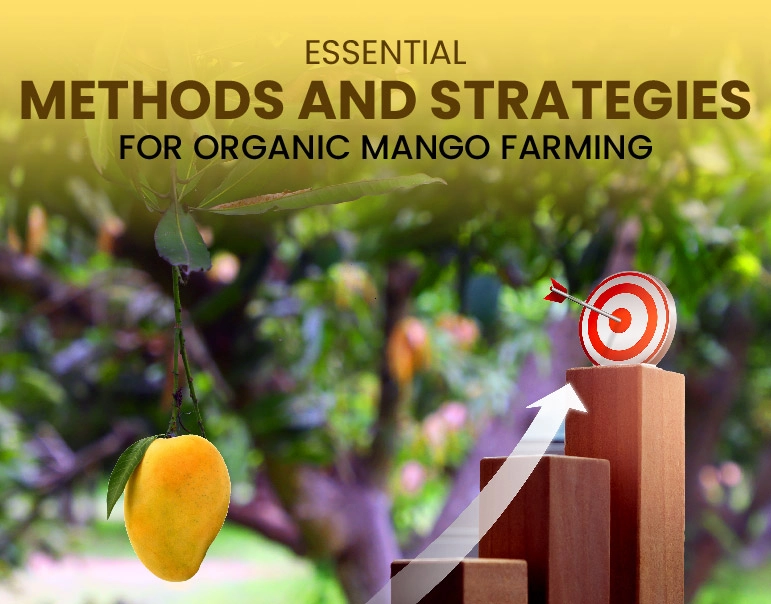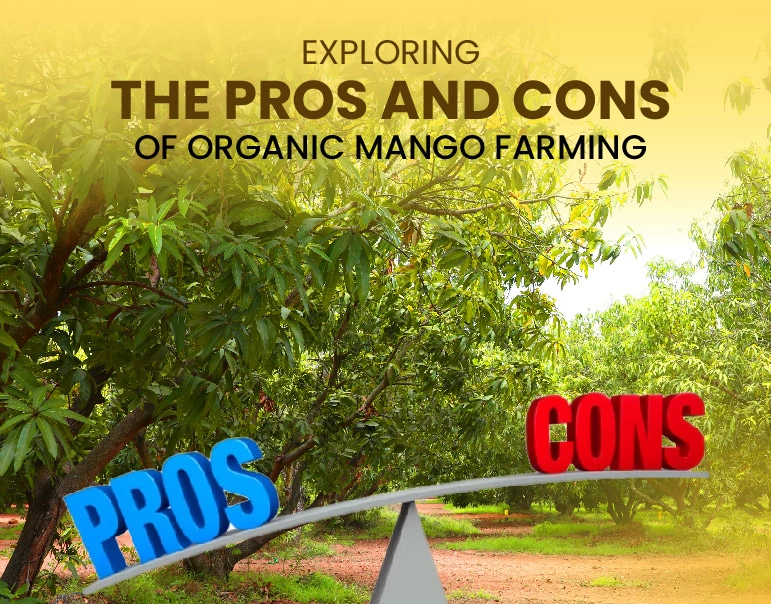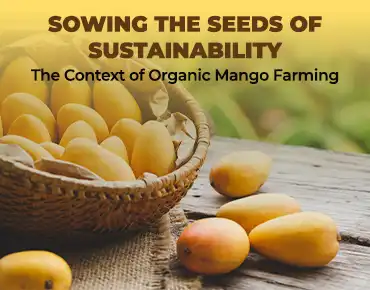Exploring the Pros and Cons of Organic Mango Farming
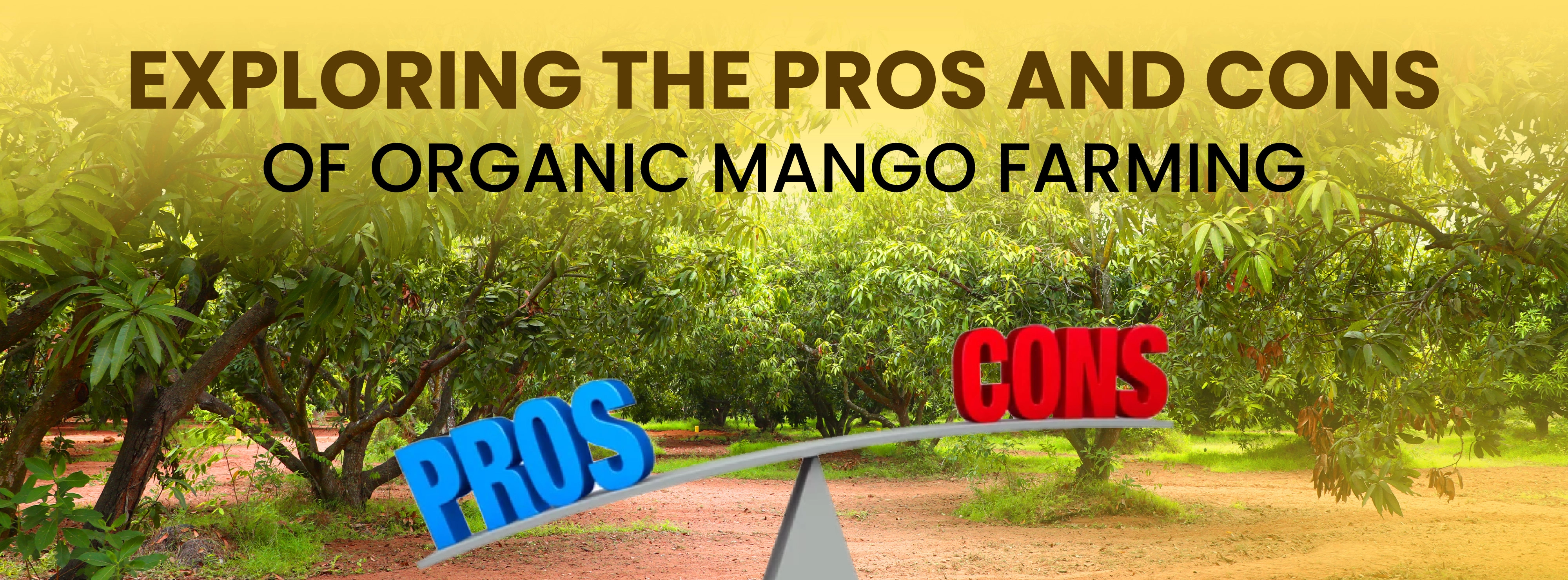

The growing demand for organic produce and the need for sustainable agricultural methods have led to an increase in the popularity of organic mango farming in recent years. But, it has its own set of benefits and drawbacks just like any other agricultural technique. This blog will examine the distinctive features of organic mango cultivation, taking into account both advantages and disadvantages.
Healthier Produce: Organic mango farming eschews the use of synthetic pesticides and fertilizers, resulting in fruit that is free from harmful residues, making it healthier for consumers.
Environmental Sustainability: By avoiding chemical inputs, organic mango farming helps preserve soil health, promotes biodiversity, and reduces water pollution, contributing to long-term environmental sustainability.
Market Demand: There's a growing demand for organic produce worldwide, including mangoes. Organic certification can fetch premium prices, providing economic incentives for farmers.
Improved Soil Fertility: Organic farming practices such as composting, cover cropping, and crop rotation enhance soil fertility and structure, leading to better long-term productivity of mango farmland.
Reduced Health Risks:Farmers and farmworkers are exposed to fewer health risks as they're not handling or inhaling toxic chemicals commonly used in conventional agriculture.
Community Benefits:AOrganic farming often involves local communities in sustainable agricultural practices, fostering community engagement and support for small-scale agriculture.
Conservation of Resources: Organic mango farming emphasizes resource conservation, including water management techniques like mulching and drip irrigation, which are vital for sustainable agriculture in regions prone to drought.
Enhanced Nutrient Content: Studies suggest that organic fruits, including mangoes, may have higher levels of certain nutrients and antioxidants compared to conventionally grown counterparts, potentially offering improved nutritional benefits.
Promotion of Biodiversity: Organic farms typically support greater biodiversity by providing habitats for beneficial insects, birds, and microorganisms, contributing to ecosystem resilience.
Long-Term Sustainability: Organic farming practices focus on building resilient agroecosystems that can adapt to changing environmental conditions, thus ensuring the long-term viability of mango farmland.
Higher Labor Costs: Organic farming often requires more labor-intensive practices such as hand weeding and pest control, leading to increased labor costs for farmers.
Lower Yields: Organic mango farming may yield lower quantities compared to conventional methods, especially during the transition period when soil health is being restored.
Certification Requirements: Obtaining organic certification can be a lengthy and costly process, involving paperwork, inspections, and adherence to strict standards, which may deter some farmers.
Market Volatility:While organic produce commands higher prices, the organic market can be volatile, with fluctuating demand and competition from cheaper conventional alternatives affecting farmers' incomes.
Pest and Disease Management:Organic farmers rely on integrated pest management strategies and natural predators to control pests and diseases, which may be less effective or require more vigilance than chemical pesticides.
Transition Period Challenges: Converting conventional mango farmland to organic typically involves a transition period during which yields may temporarily decline, posing financial challenges for farmers.
Limited Access to Inputs: Organic farmers may face challenges in accessing organic seeds, fertilizers, and pest control products, particularly in remote or underdeveloped regions.
Risk of Contamination: Organic mango farms are at risk of contamination from nearby conventional farms through pesticide drift or cross-pollination, potentially jeopardizing organic certification.
Market Access Issues: Some regions lack well-established markets or infrastructure for organic produce, limiting market access for organic mango farmers.
Education and Training Needs: Successfully managing an organic mango farm requires specialized knowledge and skills in organic agriculture, which may necessitate ongoing education and training for farmers.
In conclusion, organic mango farming offers numerous benefits such as healthier produce, environmental sustainability, and market opportunities, but it also comes with challenges including higher labor costs, lower yields, and certification requirements. Ultimately, the decision to pursue organic farming depends on factors such as market demand, available resources, and the commitment of farmers to sustainable agricultural practices. With careful planning and support, organic mango farming can be a rewarding endeavor for farmers seeking to prioritize both environmental stewardship and economic viability.
If you're considering venturing into organic mango farming or looking for agriculture mango farm land for sale, it's essential to weigh these pros and cons carefully to make informed decisions that align with your goals and values. Organic farming represents a significant shift towards more sustainable and environmentally-friendly agricultural practices, but it requires dedication, patience, and ongoing commitment to succeed in the long run.
